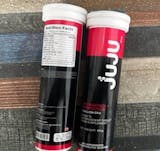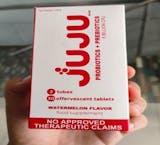Because people want their complexion to be more even and brighter, the beauty and health industries have seen a significant rise in demand for skin whitening products in recent years.
The most question frequently asked is, “Does collagen whiten skin?” This inquiry stems from the prevailing myths and truths surrounding collagen’s role in influencing skin tone.
Collagen, a protein naturally found in the body, is renowned for its myriad benefits, from promoting skin elasticity to supporting joint health. However, its impact on skin whitening remains a topic of debate and curiosity.
While collagen’s ability to improve skin health is well-documented, its direct association with skin whitening is less clear.
In this article, you will learn the truths and bust myths about the complex relationship between skin tone and collagen, which will help you appreciate the importance of collagen for a glowing complexion.
IN THIS ARTICLE
14. Conclusion
A Brief Overview of Collagen
Different types of collagen structures allow for further categorization. Over 90% of the collagen in the human body is type I, however there are 28 different forms of collagen that have been identified so far.
The Science of Skin Color
Skin color is a complex trait influenced by a combination of factors, including melanin production, genetics, and external influences. Melanin, a pigment produced by melanocytes in the epidermis, is the primary determinant of skin color.
There are two types of melanin, eumelanin, and pheomelanin, which vary in their color and concentration in the skin. Darker skin tones have higher levels of eumelanin, while lighter skin tones have more pheomelanin.
Genetics plays a significant role in determining an individual’s skin color. Specific genes, such as MC1R and SLC24A5, are associated with melanin production and distribution. Inherited variations in these genes can lead to variations in skin pigmentation within and between populations. For instance, people with two copies of the MC1R gene associated with red hair and fair skin tend to have lighter skin.
External influences, such as UV radiation from the sun, can also impact skin color. Exposure to sunlight stimulates melanocytes to produce more melanin as a protective response. Over time, excessive sun exposure can lead to tanning or sunburn, altering an individual’s skin color. Additionally, environmental factors like pollution and lifestyle choices, such as smoking, can influence the health and appearance of the skin.
Skin color is a multifaceted trait determined by a combination of factors. Melanin production, genetics, and external influences all contribute to the wide range of skin tones observed in the human population. Understanding the science behind skin color can shed light on the diversity and adaptability of our species across different regions and environments.
Collagen's Role in Skin Health
In order to maintain a youthful and healthy appearance, which is highly prized in the quest of beauty, collagen-based supplements have emerged as an essential component in the control of the ageing process. Collagen, a crucial scaffold protein responsible for skin’s smoothness and elasticity, is produced in decreasing amounts with time.
It is now widely advocated that taking action to address this issue is the best method to improve skin and hair by reversing the effects of ageing. Exciting new evidence is emerging from scientific research suggesting it may be feasible to restore youthful appearance to aged or damaged skin, enhance the performance of worn joints, and boost overall health and vitality.
Recent studies have shed light on how this bio-scaffold can sustain cells, tissues, and organs by elucidating the mechanisms that influence collagen formation in skin and the optimal organization into functional fibers that give skin its characteristic elasticity and firmness.
New technologies, ingredients, and devices have the potential to restore collagen and matrix components to their optimal condition, and our understanding of the factors that influence collagen production over the course of a person’s life (such as puberty, pregnancy, menopause, andropause) is expanding, allowing us to deliver anti-aging strategies with previously unimaginable efficacy.
This study will examine collagen formation, structure, and function in skin across the lifespan, with a focus on its significance to health, attractiveness, and aesthetics.
Direct Effects of Collagen on Skin Whitening
Glutathione is a thiol-tripeptide with a small molecular weight that is crucial for preserving redox homoeostasis within cells. In addition to its extraordinary antioxidant qualities, the discovery of its antimelanogenic properties has led to its marketing as a skin lightening agent.
In certain cultural groups, its use for this purpose is common. Evidence for its effectiveness and safety, however, is inconsistent.
It’s possible that the pharmaceutical and cosmetic industries are using its purported depigmentary effects as a marketing ploy. In order to assess glutathione’s efficacy as a systemic skin lightening agent, this review focuses on its different characteristics, including its metabolism, mechanism of action, and scientific data.
The reduced form of glutathione is found inside the cell and is crucial for several processes. Direct and indirect suppression of the tyrosinase enzyme and the subsequent switch from eumelanin to phaeomelanin production are responsible for its skin-lightening effects. It can be taken orally, intravenously, or topically.
Intravenous glutathione injections are widely used, however their effectiveness has not been established. In fact, the Food and Drug Administration of the Philippines has issued a public warning against the use of intravenous glutathione for off-label indications such skin whitening due to the severe consequences it causes.
Three randomized controlled trials have shown that topical or oral glutathione can lighten skin and has an excellent safety profile. The duration of therapy, how long the skin lightening effect lasts, and maintenance methods are all important topics that have yet to be resolved.
More randomized, double-blind, placebo-controlled trials with bigger sample size, long-term follow-up and well-defined efficacy outcomes are necessary to establish the significance of this chemical in disorders of hyperpigmentation and skin lightening.
Benefits of Collagen Beyond Skin Whitening
Collagen offers many benefits for the skin, including its ability to lighten the skin.
- Decreased dryness of the skin
- Skin elasticity is improved.
- Wrinkle and fine line reduction
- Enhanced skin firmness and elasticity
- Scarring and stretch marks will be less noticeable.
Vitamin C, Glutathione and Collagen: The Trio in Skin Whitening
Vitamin C, Glutathione, and Collagen are three essential components that play individual and synergistic roles in promoting skin health and tone, especially in the context of skin whitening. Each of these components contributes to achieving a brighter and more even complexion through their unique mechanisms.
Vitamin C, also known as ascorbic acid, is a potent antioxidant that helps protect the skin from the harmful effects of free radicals, which can lead to premature aging and skin damage. It inhibits melanin production, the pigment responsible for skin darkening, by interfering with the enzyme tyrosinase.
Additionally, Vitamin C promotes collagen production, which aids in maintaining skin elasticity and firmness, resulting in a smoother and more youthful appearance. Its skin-brightening properties make it a crucial component in skin whitening regimens.
Glutathione is a naturally occurring antioxidant in the body that is also used in skin whitening treatments. It works by inhibiting melanin synthesis and reducing the appearance of pigmentation and dark spots.
Glutathione neutralizes free radicals and helps detoxify the skin, resulting in a more radiant and even complexion. When used in conjunction with Vitamin C, the combination can be even more effective in lightening the skin, as both antioxidants complement each other’s abilities to combat oxidative stress and pigment formation.
Collagen, on the other hand, is a structural protein that gives healthy skin its firmness and suppleness. As we age, collagen production decreases, leading to wrinkles and sagging skin. By replenishing collagen levels through dietary supplements or skincare products, the skin becomes more resilient and toned.
Although taking collagen supplements does not directly whiten the skin, its role in maintaining skin elasticity and structure can enhance the overall effects of Vitamin C and Glutathione by ensuring that the skin maintains a youthful appearance as it lightens.
The synergy between these three components lies in their combined ability to address various aspects of skin health. Vitamin C, Glutathione, and Collagen work together to combat oxidative stress, inhibit melanin production, and maintain skin firmness and elasticity.
When used in tandem, they create a powerful regimen for skin whitening, providing a brighter, more even complexion, and a rejuvenated, youthful appearance. However, it’s essential to consult a healthcare professional or dermatologist before incorporating these components into your skincare routine to ensure they are used safely and effectively.
Sources of Collagen for Skin Health
Consuming collagen for its purported health benefits has not been scientifically established. Collagen is broken down into amino acids in the stomach and then dispersed throughout the body to areas where protein is needed. However, a healthy diet should include a number of items that boost collagen production.
Collagen-containing foods
- Collagen can be found in meals, particularly in tough kinds of meat high in connective tissue, such as pot roast, brisket, as well as chuck steak. A diet heavy in red meat, however, is not one that promotes long-term health or sustainability. The skin and bones of both freshwater and saltwater fish are rich in collagen.
- Popular in supermarket soup aisles, bone broth is being marketed to health-conscious consumers as a source of collagen. Animal bones are simmered for 4-24 hours in water with a splash of vinegar (to aid in bone dissolution and mineral release). However, the amount of amino acids will vary among batches based on the types of bones used, how long they have been cooked, and the amount of processing (e.g., if it is a packaged/canned version).
- Collagen is extracted from animal bones, cartilage, which is and skin to create gelatine, which is then cooled and solidified. When these connective tissues decompose, gelatine is the result. Some diet programmes, including the paleo diet, advocate for collagen and its derivative, gelatine.
Foods that promote collagen production
- Some high-protein diets are thought to encourage collagen formation because they include the amino acids glycine, proline, and hydroxyproline, which are the building blocks of collagen. Foods including fish, chicken, beef, pork, eggs, cheese, yoghurt, beans, and tofu are examples.
- Vitamin C and zinc, both of which can be found in citrus fruits, berries, green leafy vegetables, bell peppers, and tomatoes, are also necessary for collagen formation.
DOSAGE AND ADMINISTRATION FOR SKIN BENEFITS
Certainly, here are some guidelines for the recommended dosage, best time to take, and how to effectively integrate collagen supplements into your routine for skin benefits:
1. Dosage
- Start with a low dosage: It’s recommended to begin with a lower dose and gradually increase it if needed. A typical starting dose is around 2.5-5 grams of collagen per day.
- Assess your needs: Consider your age, skin condition, and dietary intake. Individuals with specific skin concerns may benefit from higher doses, but consult a healthcare professional for personalized advice.
2. Best Time to Take
- Consistency is key: Take your collagen supplement at the same time every day for the best results. This consistency allows your body to maintain a steady supply of collagen-building blocks.
- On an empty stomach: For optimal absorption, take collagen on an empty stomach, preferably in the morning, at least 30 minutes before breakfast. This way, there’s less competition with other nutrients for absorption.
3. Integration into Your Routine
- Mix with liquids: Collagen supplements are available in various forms, such as powders, capsules, and liquids. Consider your preference and lifestyle. Mixing a collagen powder into your morning coffee, smoothie, or a glass of water can be a convenient way to incorporate it into your daily routine.
- Include in a balanced diet: While supplements can help, they should complement a well-rounded diet rich in protein, vitamins, and minerals. Foods like lean meats, fish, eggs, and vegetables support natural collagen production.
- Skin Hydration is key: Drinking an adequate amount of water is essential for the effectiveness of collagen supplements. Proper hydration ensures your skin remains plump and well-hydrated.
4. Patience and Observation
- Give it time: Collagen supplements may take several weeks or even months to show visible results on your skin. Be patient and consistent in your daily routine.
- Observe changes: Regularly assess your skin’s texture, elasticity, and overall appearance to gauge the effectiveness of the supplement. Keep a journal to track any improvements or changes.
5. Consult a Professional
- Consult a dermatologist or healthcare provider: If you have specific skin concerns or underlying health conditions, it’s advisable to seek professional guidance before starting any supplement regimen.
Remember that taking collagen supplements are just one part of a holistic approach to maintaining healthy skin. They work best when combined with a well-balanced diet, proper skincare, and a healthy lifestyle. Individual responses to collagen supplements may vary, so it’s essential to tailor your routine to your unique needs and preferences.
Side Effects and Precautions
Side Effects of Excessive Collagen Consumption:
- Digestive Issues: Excessive collagen intake may lead to digestive discomfort, such as bloating, diarrhea, or constipation.
- Kidney Stones: Some studies suggest that high collagen intake may increase the risk of kidney stone formation due to the presence of certain amino acids like hydroxyproline.
- Allergic Reactions: In rare cases, individuals may experience allergic reactions to collagen supplements, leading to symptoms like itching, hives, or swelling.
- Weight Gain: Collagen supplements are often calorie-dense. Excessive consumption without a balanced diet can contribute to weight gain.
Interactions with Other Medications:
- Blood Thinners: Collagen supplements may have mild blood-thinning effects. If you’re taking blood-thinning medications like Warfarin, consult your healthcare provider, as collagen can potentially increase the risk of bleeding.
- Protein Digestion Inhibitors: Some medications, like proton pump inhibitors (PPIs) and antacids, can reduce stomach acid production. This might affect the digestion and absorption of collagen supplements.
- Calcium Supplements: If you take calcium supplements, be cautious about the calcium content in collagen supplements, as excessive calcium intake can lead to kidney stone formation.
General Precautions:
- Consult a Healthcare Provider: Before starting any collagen supplementation regimen, consult with a healthcare provider, especially if you have underlying medical conditions or are taking other medications.
- Follow Recommended Dosages: Stick to the recommended daily dosage specified on the collagen supplement packaging or as advised by a healthcare professional.
- Quality Matters: Choose high-quality collagen supplements from reputable brands to ensure safety and effectiveness. Look for products that undergo third-party testing for purity.
- Balanced Diet: Collagen supplements should complement a balanced diet, not replace it. Make sure you’re consuming a variety of nutrients from whole foods.
- Stay Hydrated: Collagen production in the body requires adequate water intake. Drink plenty of water to support collagen synthesis.
- Monitor for Allergic Reactions: If you experience any signs of an allergic reaction after taking collagen, discontinue use and seek medical attention.
- Pregnancy and Nursing: Pregnant and nursing women should consult their healthcare provider before using collagen supplements.
- Long-Term Use: It’s essential to consider the long-term effects of collagen supplementation. There is limited research on the safety of extended use, so regular check-ins with your healthcare provider are advisable.
Remember that individual responses to collagen supplements may vary, so it’s crucial to pay attention to your body and consult a healthcare professional for personalized guidance on collagen consumption.
Natural Ways to Boost Collagen Production
Bone broth
Recent studies have shown bone broth may not be an effective source of collagen, while anecdotal evidence suggests otherwise. Made by cooking animal bones in water, this technique is supposed to extract collagen. To add flavor to the broth when cooking at home, try using several spices.
Chicken
There’s a good reason why a lot of people take chicken-based collagen supplements. It is found in high concentrations in everyone’s favorite white meat. (Anyone who has dissected a chicken in its entirety will attest to the abundance of connective tissue in chickens and other birds.) Chicken is a great food source of collagen because of these tissues.
Fish
Bones and ligaments in fish are also comprised of collagen, much like in other animals. Marine collagen has been touted by some as being particularly digestible.
While eating fish like tuna or salmon can increase your collagen intake, it’s important to note that the “meat” of these fish contains less collagen than the bones and skin.
Egg whites
While eggs lack the connective structures seen in many animal products, their whites are rich in the amino acid proline, which is used to make the collagen in the body.
Citrus fruits
As the body’s precursor to collagen, pro-collagen is heavily reliant on vitamin C. Therefore, it’s crucial to consume a enough amount of vitamin C.
Citrus fruits, such as oranges, grapefruits, lemons, and limes, are excellent sources of this vitamin. For a healthy and delicious breakfast, grill a grapefruit or slice an orange.
Berries
Though citrus tends to receive all the limelight for its vitamin C concentration, berries are another wonderful source. When compared with oranges, strawberries actually have a higher vitamin C content per ounce.
Blackberries, blueberries, and raspberries are also rich in this nutrient.
How to Choose Quality Collagen Products
Not all collagen is created equal. Since collagen is an animal product, choosing collagen from a reputable source is important. Look for collagen that comes from grass-fed, pasture-raised animals or wild-caught fish. The collagen should not have any additional fillers or additives.
Overall, when choosing a collagen supplement opt for a brand that is transparent about their processes and sourcing. Also, look for collagen that is certified by a third-party quality-testing company, like NSF International or United States Pharmacopeia (USP).
I like these brands:
- Needed Collagen Peptides
- Vital Proteins
- Ancient Nutrition
Juju's Collagen with Vitamin C and Glutathione
Juju’s Collagen with Vitamin C and Glutathione is a game-changer in the world of skincare and overall well-being. This innovative product offers a unique combination of collagen, vitamin C, and glutathione, each playing a crucial role in enhancing skin health and promoting vitality.
Collagen, a structural protein, is renowned for its ability to rejuvenate and firm the skin, reducing fine lines and wrinkles. Vitamin C complements this effect by promoting collagen synthesis and providing essential antioxidant protection against harmful free radicals.
Meanwhile, glutathione, a potent antioxidant, not only enhances the skin’s radiance but also supports the body’s detoxification processes. Together, these three powerful components work in harmony to give you a youthful, vibrant complexion and boost your overall health.
Say goodbye to dull skin and hello to a more youthful, radiant you with Juju’s Collagen with Vitamin C and Glutathione!
Frequently Asked Questions
Can collagen whiten dark spots?
The amino acids found in collagen help keep your skin looking smooth, even, and healthy. To improve an uneven complexion, collagen is the answer. Collagen’s amino acids can also help minimize the appearance of dark spots and scars from acne or other skin issues.
Which is better collagen or glutathione?
While collagen plays a crucial role in providing structure, strength, and support to the skin, glutathione works to neutralize the effect of free radicals. However, using glutathione with collagen promises to enhance skin quality by reversing the effects of ageing.
Does collagen increase skin glow?
Collagen plays a major role in keeping the skin around the face looking young. It provides strength, elasticity and hydration that all make for a visibly youthful complexion. This helps your skin to look: Dewy and plump.
What is the best vitamin for whitening skin?
Three of the best vitamins for lightening dark spots are vitamin C, vitamin B12, and vitamin E. Vitamin C helps your skin produce more collagen while inhibiting the formation of melanin. Vitamin B12 also promotes collagen formation while supporting the growth of new skin cells.
What type of collagen is most effective?
Type I collagen
It is usually considered best for the skin. It is the most prevalent type of collagen in the body. This collagen preserved the levels of collagen in the skin, hair, or nails. Levels of type I collagen begin to decline around 25 years of age.
Conclusion
Collagen is a protein found in our skin, and it plays a crucial role in maintaining its strength and elasticity. While collagen supplements and skincare products are often promoted as beneficial for skin health, there is no scientific evidence to suggest that collagen can whiten the skin. Skin color is primarily determined by genetics, melanin production, and sun exposure.
If you’re looking to improve your skin’s overall health and appearance, collagen may help with hydration and reducing the appearance of fine lines and wrinkles. However, it won’t change your skin’s natural pigmentation. It’s important to be cautious of products or claims that promise skin whitening effects, as they may not be backed by reliable scientific research and could potentially be harmful.










